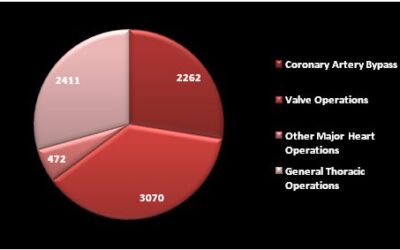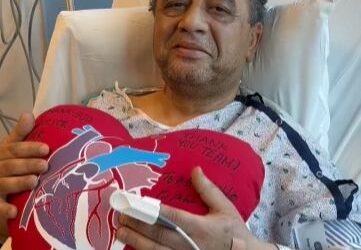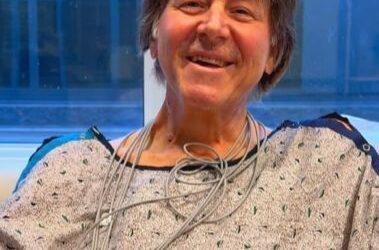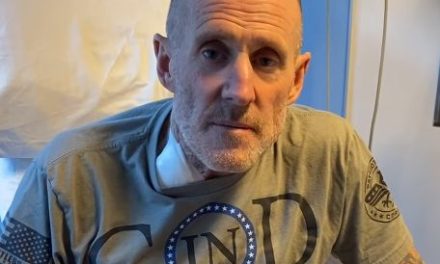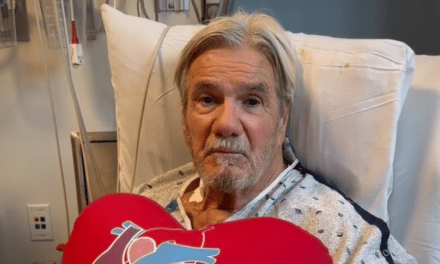Ischemic mitral regurgitation (MR) is a frequent complication of myocardial infarction (MI), doubling the risk of developing heart failure and mortality. Its primary mechanism is leaflet tethering due to disturbed left ventricular geometry from myocardial scarring and remodeling of the heart as a result of the MI.
The incidence in the U. S. is impressive. Approximately 1 million people are diagnosed with a MI annually, with 50% developing ischemic mitral regurgitation. In patients with viable myocardium, coronary bypass surgery may reverse the left ventricular remodeling and improve the MR.
Unfortunately, 50% of patients with moderate or severe ischemic MR will have persistence or worsening of their mitral regurgitation after revascularization alone, requiring mitral valve surgery.
In this heart failure population, studies have shown that performing a mitral valve repair, using a restrictive annuloplasty ring, regrettably results in a 50% chance of recurrent, severe MR, at long-term follow-up —which leads to even poorer long-term survival. Therefore, a chordal-sparing valve replacement will likely provide a more durable result —and better outcomes— over mitral valve repair, in these critically I’ll patients.
Based on the current literature, and my personal experience, my choice of intervention for severe ischemic mitral regurgitation is to place a bovine mitral prosthetic valve, with concomitant clip occlusion of the left atrial appendage, due to the high risk of postoperative atrial fibrillation.
With the advent of valve-in-valve trans-catheter mitral valve replacement (TMVR), the patient will have a percutaneous option should the prosthetic valve leaflets deteriorate in the future. Indeed, sometime in the future, TMVR may become the standard of choice for the primary mitral valve operation.
Recent Posts
When is the Best Time to Exercise?
This video talks about the advantages of exercising in the morning. Morning workouts release endorphins and improve blood flow, helping you to feel more energized and mentally sharp throughout your day. There are fewer distractions in the morning and it makes it...
May is Mental Health Awareness Month
Let’s take this opportunity to reflect on something essential, yet often overlooked in professional environments: our mental well-being. In a world that values productivity and performance, it’s easy to forget that behind every deadline, meeting, or project is a human...
10 Jefferson Hospitals Earn an “A” Safety Grade
We are incredibly proud to announce that 10 Jefferson Health hospitals have received an "A" Hospital Safety Grade from The Leapfrog Group for Spring 2025. This recognition underscores our commitment to improve patient lives and prioritize their safety across our...
Patient Outcomes – May 1, 2025
Nothing can be more important than knowing the experience level of your surgeon. Generally speaking, the more you do something, the better you become! Since entering practice in 1992, I have performed over 8,215 major heart and lung operations and numerous minor...
Day #5 After CABG Surgery
With the patient’s permission, this video discusses the post-operative journey of an individual who underwent urgent/emergent conventional sternotomy, triple-vessel coronary artery bypass graft (CABG) surgery, after developing severe chest pain with ECG changes during...
Left Thoracotomy for Complex Mitral Valve Replacement
This is a unique case of a 64-year-old man who had a history of Hodgkins disease with mantle radiation to his chest. I had performed a surgical aortic valve replacement 10 years prior with a biological valve that is still working well. The patient now presented with...
Featured
Pages
- Learn about heart valves. Heart Valves
- Read testimonials. Testimonials
- Did you know I have a consulting firm? Singer Heart/Lung Consulting
- Check out my TedTalk! Defining Success
Links
- Links page with more information about your heart. Links
- Dr. Adam Pick's Site: heart-valve-surgery.com




